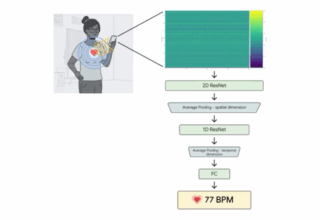
Mobile technology has been evolving for the better part of three decades. The fact is, nobody really knew how far the technology could go and the same can be said for today. Although there many theories and ideas on where mobile technology could go, the one thing that hinders this progress is the availability and readiness of the necessary supporting technology and infrastructure. That is to say until we learn to remove these limitations, we can only go so far.
Therefore, most of the places where we think mobile technology could go are theoretical. But that does not mean that we cannot dream and imagine, right?
Autonomous mobile to mobile communication
Today, if you want a phone to talk to another you have to instruct it to by way of email, calling, texting or near field communication. But what happens if you want phones to talk to each other without human intervention. For example, setting phones to alert each other when one receives a software update so that the updated phone tells others around it to do the same. Although this might sound like turning phones into robots, think about it: they already do so much for us, they are practically robots.
Having a conversation with your phone in real time
Although phones have gotten so much better at understanding commands and queries, we are still a long way from talking to our phones like we do humans. Yes, there are lots of AI’s and bots available to answer simple queries but full conversations will have to wait for a little while. In the same vein, these conversations depend on the internet and maybe in the future, with the expansion of mobile phone memories and storage, our phones could be evolved enough to do all this without the need for an internet connection.
Expansion in what we can control with our phones
We are living in a smart age where anything can be connected to anything else. We have homes that are fully automated. But this trend is not stopping or slowing down. The evolution could go into other areas that we have not even thought about. For example, what if you could mow your lawn sitting right in your sitting room? Mobile technology can expand into all these untapped areas and it is showing sign of going there.
Mobile devices as diagnostic devices
With mobile cameras getting better with each iteration, who says they will not evolve enough to become diagnostic equipment? Analyzing fluid samples, taking x-rays, scanning for organ damage and more. All this can be made possible with a little innovation and imagination.
Mobile phones as full computing devices
Mobile phones are getting more and more powerful with some phones surpassing the computing power of some mid-range computers. Although mobile technology will always be limited by space and other factors like heat output from the processors, these problems can be solved. Once they are, what is to stop mobile phones from leveraging their technology to handle most of the computing tasks we already do on our computers?
In the last decade, we saw phones used as computer devices. If you look at the failed Ubuntu Phone project that was using a phone, a dock and a monitor as a computer, you can really get a gist of where this idea could go. Now, we have phones that are several times better and stronger than we did when this ambitious project was launched. Now Microsoft is leading this charge, although in hushed tones, with the Surface Dock and it seems they may have cracked the code. Now all that remains is making the phones and tablets to be used in this way strong enough to outpace and replace computers.
We still have a long way to go
It is easy to feel overwhelmed and as if the space is overcrowded. Nothing could be further from the truth. We always come up with new ways to make use of what we already have and mobile technology is no different. It will take some time, but it we are still a long way off from pushing mobile technology to its limits.















